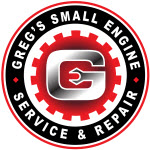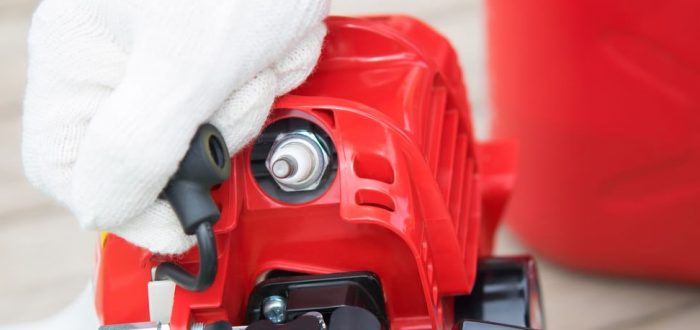No matter how much we try to take good care of things, there’s one inevitable reality we need to accept – stuff breaks. Everything tangible around us has an expiration date. They will eventually stop working either naturally or forcibly. This is where the art of troubleshooting comes in.
Preventative maintenance plays a crucial role in increasing the longevity of things such as our small engines but what if your small engine suddenly refused to start? The first thing to do? Troubleshoot. Many people may opt to immediately bring their small engine problems to the attention of the experts and that’s okay. However, learning how to troubleshoot small engines that won’t start will not only help you save time but also money.
Inspect the spark plug
One of the first things to check if your small engine won’t start is the spark plug. Inspect the spark plug and see if there are any signs of wear or damage. Sometimes, you only need to get the spark plug replaced. It’s a common solution if the electrode is damaged or burnt out, the porcelain insulator is cracked, or there’s carbon buildup at the electrode.
You may also want to find out if the spark plug is defective by using a spark plug tester. There should be a spark at the terminals when the engine is about to start. Otherwise, it’s an indication of a defective spark plug which requires a replacement.
Check your fuel
It might not seem like something you can miss but you might have forgotten about the fuel. Check the fuel and refill it if it’s empty. The reason for filling the fuel tank before putting equipment into storage is to allow less room for water. Moisture buildup is a natural result of simply collecting humidity from the ambient air. If the machine was stored with a tank that wasn’t completely full, drain out and replace all the fuel.
Be sure the shut-off valve is open and that it is kept clean. Also ensure that the fuel filter is clean. Getting dirt into the ignition chamber is a recipe for engine damage.
Clean the carburetor
Because the carburetor regulates the flow of air and fuel through the equipment, any issue with the carburetor may result in some small engine problems. This is why it’s a must to keep your carburetor clean.
Check the carburetor if it is clogged. A clogged carburetor is usually because of the fuel left in the engine for a long period of time which eventually creates a sticky substance. Get rid of the clog by using a carburetor cleaner. But if it doesn’t do the trick, consider rebuilding or replacing the carburetor.
Take a look at the compression system and the valves
The compression system plays a significant role in providing power to engines of all types. The system consists of piston, valves, rings and cylinders responsible for controlling the way the fuel vapors and air flow through the engine. The valves are the ones that allow the air to move in and out while the pistons move in a way that the air is pushed to the ignition system. Piston rings, on the other hand, make sure that the air is tightly sealed up.
A leak can lead to compression problems that may prevent the engine from starting. If you have a tester, you can perform a test to find out if there’s a leak with the compression system.
Check the ignition coil
The ignition coil not working properly may be another reason why a small engine won’t start. The ignition coil is what sends voltage to the spark plug and if it’s confirmed to be defective, you need to have it replaced.
Check the start switch
Sometimes, it’s not an internal problem with the small engine but rather it might be the switch. Have you observed if the start switch of your small engine is difficult to turn? Or has it been working intermittently? If so, consider testing its continuity using a multimeter. If confirmed defective, replace it right away.
Your knowledge of basic small engine troubleshooting can come in handy especially when immediate help isn’t available. And if one day, you come across a problem with a small engine that won’t start, feel free to refer to this guide. You might just get the problem addressed in no time!
For more tips on small engine maintenance or if you’re looking for a reliable small engine service and repair center, please visit Greg’s Small Engine.






















